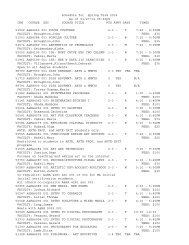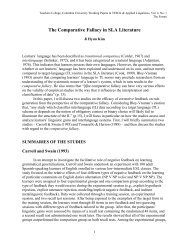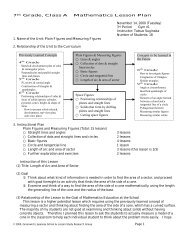UNICEF Mongolia - Teachers College Columbia University
UNICEF Mongolia - Teachers College Columbia University
UNICEF Mongolia - Teachers College Columbia University
Create successful ePaper yourself
Turn your PDF publications into a flip-book with our unique Google optimized e-Paper software.
CHAPTER 1: INTRODUCTION<br />
In line with other development partners, <strong>UNICEF</strong> has focused its aenon to the topic. Several country<br />
and regional offices of <strong>UNICEF</strong> commissioned studies on teacher supply and quality. There are nine<br />
other studies in parcular that have applied a similar interpreve framework and have used a similar<br />
methodological approach. They are as follows:<br />
<strong>UNICEF</strong> CEECIS Region (Central and Eastern Europe & Commonwealth of Independent<br />
States) with naonal studies in the following countries:<br />
• Armenia<br />
• Bosnia & Herzegovina<br />
• FYR Macedonia<br />
• Kyrgyzstan<br />
• Moldova<br />
• Uzbekistan<br />
<strong>UNICEF</strong> ESARO (Eastern and Southern Africa Office) with naonal studies in:<br />
• Lesotho<br />
• Malawi<br />
• Swaziland<br />
1<br />
2<br />
3<br />
4<br />
5<br />
6<br />
One of the co-authors of this report, Gita Steiner-Khamsi, served as the research team leader of the<br />
two regional and nine naonal <strong>UNICEF</strong> studies listed above. The consistency in interpreve framework<br />
and methodological approach makes it possible to compare the situaon of teachers across regions and<br />
countries. The next secon demonstrates the similarity of the <strong>Mongolia</strong>n teacher salary system with that<br />
in former socialist countries of the CEECIS Region.<br />
1.2. THE TEACHER SALARY SYSTEM IN MONGOLIA:<br />
A COMPARISON WITH THE CEECIS REGION<br />
Since the salary reform of 2007, teachers in <strong>Mongolia</strong> have been earning on average higher salaries than<br />
other public servants. Only the salaries of those who work in government administraon or finance and<br />
insurance sectors are comparable to the wages of teachers. 3 As the pilot research project of the Ministry<br />
of Labor (2011) illuminated, public servants earn on average 230,500 MNT in terms of base salary (87.4<br />
percent of the total monthly pay); 27,000 MNT in the form of supplements (10.2 percent); and 6,200<br />
MNT for transportaon. As shown in Table 1 below, teachers in <strong>Mongolia</strong>, however, earn on average<br />
324,292 MNT per month.<br />
The pilot study of the Ministry of Labor further demonstrates that the average teacher salary ranks<br />
among the top 5-10 percent of salaries in the public and private sector. Approximately one-third of the<br />
populaon in <strong>Mongolia</strong> (28-35 percent) lives on the minimum wage of 108,000 MNT or less.<br />
TEACHERS IN MONGOLIA: AN EMPIRICAL STUDY ON RECRUITMENT INTO TEACHING,<br />
PROFESSIONAL DEVELOPMENT, AND RETENTION OF TEACHERS<br />
3 See report of the Ministry of Labor of <strong>Mongolia</strong>. (2011). Policy Analysis Report on Salary Structure. Pilot Research. Ulaanbaatar:<br />
Ministry of Labor.<br />
17



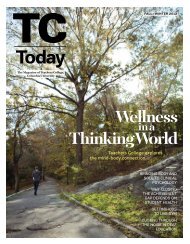
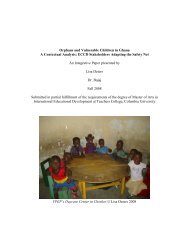
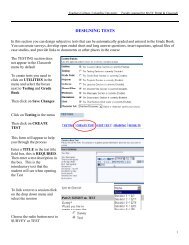
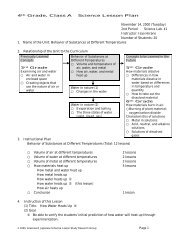

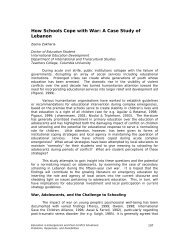




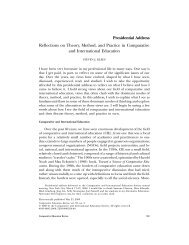
![TC Tod[...].pdf - Teachers College Columbia University](https://img.yumpu.com/27074883/1/190x252/tc-todpdf-teachers-college-columbia-university.jpg?quality=85)
